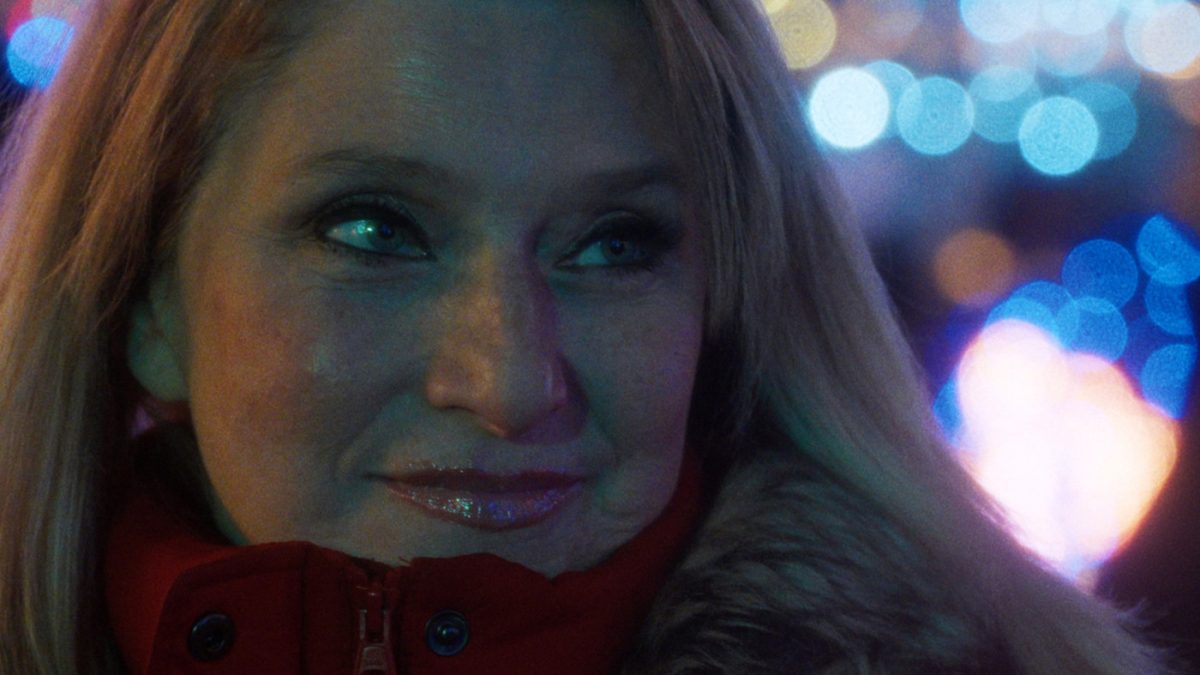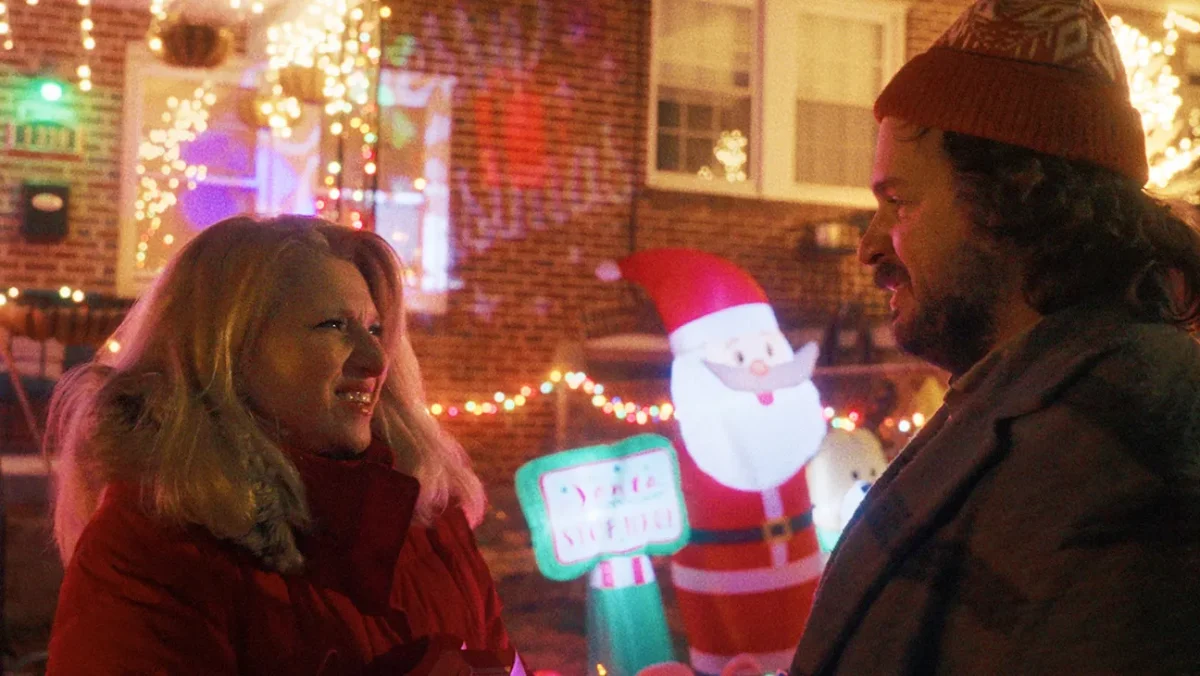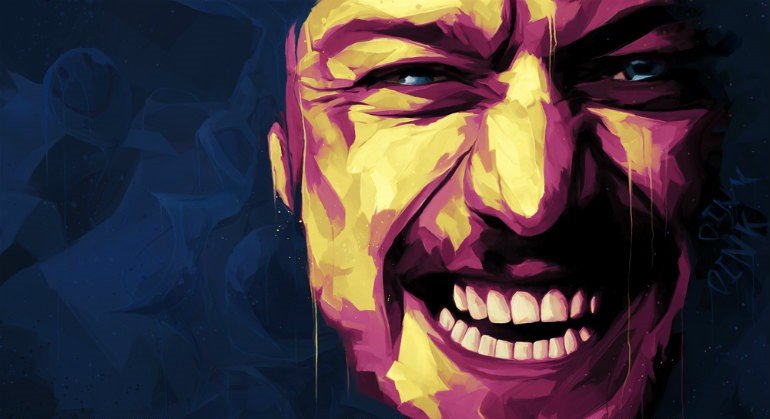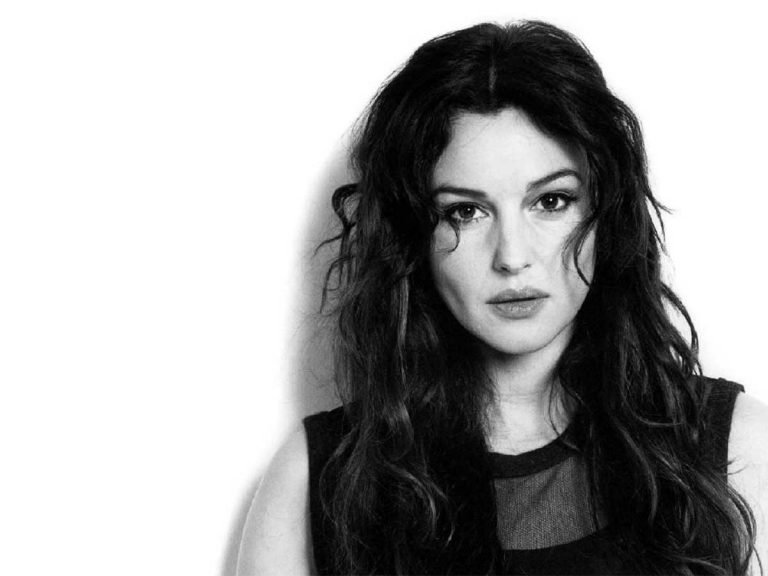While the premise of a heartwarming holiday-themed comedy would seemingly write itself, finding the right approach for a Christmas film has proven to be a surprising challenge. There are certainly Christmas classics like “Die Hard,” “It’s A Wonderful Life,” or “Miracle on 34th Street” that warrant rewatches on a yearly basis, but the industry has struggled to add new entries to this canon.
It’s easy for these holiday films to either feel too saccharine or completely cynical, with little room in between. Although it’s unclear if “The Baltimorons” (2025) will age as well as “Home Alone” or “Eyes Wide Shut,” it’s one of the few recent examples of a Christmas film that understands why the holidays make for an interesting setting.
“The Baltimorons” stars Michael Strassner as the former improv comedian Cliff Casher, who has managed to stay sober for six months after a suicide attempt. Although Cliff’s relationship with his fiancée, Brittany (Olivia Luccardi), has been marred by mutual trust issues, he attempts to appease her by attending a Christmas Eve celebration with her family.
Cliff gets into a clumsy accident that forces him to quickly make his way into the city of Baltimore, where he finds the only dentistry office willing to take in a client during the holiday. Dr. Didi Dahl (Liz Larsen) is initially irritated by Cliff’s talkative nature, but they gradually develop a friendship as they each deal with familial conflicts.
The holiday season can be particularly tough for those who have fallen out with their relatives. Even the most secular people can be swayed into believing that Christmas is a time best spent with a family. Both Cliff and Didi are in a unique position where they have a lot of affection for their loved ones, but don’t feel entirely comfortable around them. Cliff can’t help but feel judged by Brittany’s family, and Didi feels like a stranger in her own home, as her ex-husband has found himself a younger bride.
The initial tension that builds between them isn’t just a sign of chemistry, but a recognition that these characters are frustrated for the same reasons. Even if “The Baltimorons” writes itself in some corners in order to keep them together, Didi and Cliff’s relationship evolves significantly over the course of a single day.

A film that is this humble in its scope and story requires two actors who have an undeniable connection, and thankfully, Strassner and Larsen are simply remarkable. Strassner plays the type of lovable, put-upon underdog that could have belonged to John Candy decades prior, as he’s a character who always proves himself worthy of second chances. While the awkward, highly conversational behavior from Cliff may at first seem derivative of other “mumblecore” protagonists, Strassner brings a surprising depth to the role as he unpacks Cliff’s recovery process.
He needs to distract himself in order to avoid going down the dark rabbit hole of thoughts that caused him so much anguish. But he also feels that he’s been denied the opportunity to enjoy the flourishes of life. A major point of contention with Brittany is his improv performances; while Brittany believes that he should leave that part of his life behind entirely, Cliff hasn’t found anything else that energizes him in the same way.
Larsen is an equally great discovery, as she beautifully showcases how a sixtysomething working professional is able to come out of her shell, despite societal constraints telling her that she’s past her prime.
While Didi’s initial reluctance to branch out of her comfort zone speaks to her reservations as a character, her slow acceptance of risks makes for a delightfully charming performance, as there’s not a moment in which Larsen does not feel authentic. Although there’s more time dedicated to pinpointing specific events in Cliff’s past, the scenes with Didi’s family give weight and context to the unusual process of starting over she’s been forced to undergo late in life.
As its title would suggest, “The Baltimorons” is a love letter to Baltimore and is keen to note the blue-collar workers, cultural destinations, and infrastructural quirks that distinguish it among America’s most recognizable cities.
The benefit of such a personal production is that there’s nothing about the film that seems artificial, as even the improv group Cliff is involved with has a believable backstory and scope. Ironically, a pivotal scene in which Cliff and Didi attend an improv show is the only point at which the film strains to lead to a set piece. While Cliff’s past is an important piece of his character arc, the opportunity to see many of his old colleagues comes along at an abrupt moment, temporarily breaking the authenticity of the story.

Writer/director Jay Duplass has, along with his brother Mark, revolutionized the independent film industry by offering a route for up-and-coming storytellers to put together highly personal, often improvisational dramedies on shoestring budgets. While Duplass has occasionally been criticized for establishing what can be reductive parameters to rising artists, “The Baltimorons” doesn’t have the DIY aesthetics of some of the more self-absorbed entries in the “mumblecore” canon.
There’s a freewheeling sense of spontaneity to the conversations that Cliff and Didi share, but it never feels as if the film is hinged on improvisation in order to determine its next act. In fact, Didi and Cliff’s stories reach a remarkably mature conclusion, which manages to avoid some of the cliches that are often found in holiday films.
To describe “The Baltimorons” as a “pleasant” film is not a detriment, as Duplass seems highly aware of the emotional register that it is pitched at. It’s often a very funny film, but at no point do the situational gags feel constructed to reel the audience back in. Simultaneously, the film is able to touch on more somber themes like addiction, grief, and depression without burdening the audience with traumatic material.
It’s also a film that is easy to root for, as the lack of established names in the cast gives the film the same hardworking, unsung gratitude that the characters do. There’s enough poeticism and insight within “The Baltimorons” to spark warm feelings, and perhaps, it may be a film that continues to be rewarding within subsequent holiday seasons.



![Android Kunjappan Ver 5.25 [2019] Review: A Sweet and Succulent Surprise](https://79468c92.delivery.rocketcdn.me/wp-content/uploads/2019/11/Android-Kunjappan-Ver-5.25-content-and-featured-768x576.jpg)



![Dinner in America [2020]: ‘Fantasia’ Review – An anarchic and unusual rom-com with a ‘Napoleon Dynamite’ hangover](https://79468c92.delivery.rocketcdn.me/wp-content/uploads/2020/08/Dinner-in-America-Movie-Review-Highonfilms-1-768x320.jpg)
